Explore our multiple pathways to lasting recovery at our mental health & addiction treatment center in Florida at Calusa Recovery.
Addiction is a struggle that affects not only individuals but also their families, communities, and societies at large. The pain and isolation that come with substance abuse can be overwhelming, making it hard to take the first step toward recovery. For many people, addiction isn’t an isolated issue—it’s deeply intertwined with underlying mental health conditions such as depression, anxiety, or trauma. When substance abuse and mental health conditions coexist, it’s referred to as a dual diagnosis.
At Calusa Recovery in Fort Myers, FL, we understand that addiction is more than a physical dependency. It’s a complex interplay of emotional, mental, and environmental factors that requires specialized care. That’s why we offer a comprehensive Dual Diagnosis Treatment program designed to address both substance dependency and the mental health issues that contribute to it. If you or a loved one are struggling, we’re here to help you navigate this journey toward healing.

Dual Diagnosis Treatment is a focused program designed for individuals dealing with both substance abuse disorders and mental health conditions. These conditions don’t just coexist—they often exacerbate one another. For example, anxiety or depression might lead a person to self-medicate with drugs or alcohol, which in turn worsens their mental health state. Without addressing both issues simultaneously, sustainable recovery can feel out of reach.
Recognizing this, our Dual Diagnosis Treatment program in Fort Myers, FL provides integrated care that seeks to identify, treat, and manage all contributing factors. Our team at Calusa Recovery understands the delicate balance involved in addressing this dual challenge, ensuring each client receives personalized treatment tailored to their unique needs.
Signs and Symptoms of Addiction & Drug Dependency
While each person’s experience with addiction varies, common signs of drug dependency include:
When accompanied by mental health struggles, these symptoms become even harder to manage. That’s where dual diagnosis treatment comes in—a coordinated approach that helps address both challenges simultaneously.









Dual Diagnosis Treatment is essential for individuals who find their substance use intertwined with mental health issues. If you’re struggling with addiction and noticing heightened feelings of depression, anxiety, bipolar symptoms, or trauma-related stress, you may benefit from dual diagnosis care.
Mental health struggles often remain undiagnosed or untreated, even as they drive addictive behaviors. Early intervention is vital in breaking this cycle. The sooner you address both substance dependency and mental health, the greater your chance of achieving lasting recovery.
At Calusa Recovery, we specialize in helping individuals determine whether dual diagnosis care is right for them. Our compassionate team listens closely to your concerns, guiding you toward the solutions that will provide the relief you need to build a brighter future. Recovery starts with acknowledgment, and we’re here to support you on that journey.
Have more questions?
Contact our admissions team at 866.939.6292
Dual diagnosis—also known as co-occurring disorders—is a deeply common and complex issue in substance abuse treatment, where individuals simultaneously experience both a substance use disorder (SUD) and a mental health disorder. In the United States alone, approximately 21.5 million adults had a co-occurring disorder in 2022, according to SAMHSA’s National Survey on Drug Use and Health. Moreover, nearly 50% of individuals with a lifetime SUD will also experience a mental illness at some point, and roughly 37.9% of those with SUDs have a diagnosable mental health condition. These statistics highlight the far-reaching prevalence of dual diagnosis and underscore why integrated treatment approaches are vitally important.
Treating dual diagnosis requires specialized, integrated care—addressing both mental health and substance use concurrently. Research indicates that simply treating one condition in isolation often leads to relapse or worsening of the other. Integrated treatment models, which combine behavioral therapy, medication management, and peer support, have been shown to improve long-term recovery outcomes by up to 30–70% when compared to traditional, sequential treatment approaches. Unfortunately, only a fraction of treatment facilities—around 7.4%—actually offer dedicated programs tailored to co-occurring disorders, leaving a significant gap in care.
Dual diagnosis is not only common but can also be more severe and harder to treat than single disorders. Individuals with co-occurring conditions often face higher rates of hospitalization, more severe symptoms, and increased risk of relapse and other health complications. Treatment is further complicated by barriers such as stigma, fragmented care systems, medication interactions, and limited access to comprehensive dual-diagnosis programs. These challenges make it clear that effective recovery hinges on timely diagnosis, holistic treatment planning, and continuous support.
Given the high prevalence and increased complexity of dual diagnosis, it’s essential that treatment providers offer comprehensive, integrated care—combining mental health and addiction services under one roof. Individuals should look for programs that screen thoroughly for both disorders, provide coordinated and continuous care, and offer evidence-based interventions such as cognitive behavioral therapy (CBT), medication-assisted treatment (MAT), and peer support. By ensuring that both conditions are addressed simultaneously—and that treatment is adjusted as recovery progresses—dual diagnosis treatment sets individuals on the path to sustained healing and improved long-term outcomes.
We work with most major insurance carriers to help provide affordable, accessible treatment options to those who need it most. Our admissions coordinators can answer all of your questions. Call for a confidential assessment and insurance verification.






At Calusa Recovery’s Southwest Florida Dual Diagnosis Treatment Center, your care is our primary focus. We offer a welcoming, supportive environment where you can safely begin the journey toward healing. Our experienced staff is trained to manage both addiction and mental health disorders, ensuring you receive treatment that addresses the whole person—not just the symptoms.
When you enroll in our Dual Diagnosis Treatment program in Fort Myers, FL, here’s what to expect:
Choosing a specialized rehab program like Calusa Recovery in Fort Myers, FL offers unique benefits that set you up for success in your recovery journey. Being located in beautiful Southwest Florida adds a calming, restorative backdrop to a highly effective treatment program.
Here’s why selecting Calusa Recovery’s Dual Diagnosis Treatment program can make all the difference:
Each client at Calusa Recovery receives tailored care rooted in compassion, expertise, and dedication. We know recovery is possible, and we want you to feel confident choosing us as your partner in health and wellness.
At Calusa Recovery, our Southwest Florida Dual Diagnosis Treatment Center is equipped to address various addiction and substance abuse issues. Whether you’re struggling with alcohol dependency, opioid addiction, or the misuse of stimulants, we’re ready to help.
We also specialize in co-occurring conditions such as:
Our integrated approach ensures each diagnosis—whether substance-related, mental health-related, or both—is treated thoroughly and effectively. Healing is possible, no matter how long addiction or mental health struggles have been part of your life.
Using a PPO (Preferred Provider Organization) insurance plan to cover dual diagnosis treatment can be a practical and accessible way to receive care for both mental health and substance use disorders. PPO plans are known for their flexibility, allowing individuals to choose from a wide network of providers without needing a referral from a primary care physician. This is especially beneficial when seeking specialized care such as dual diagnosis treatment, which may involve a combination of therapy, medication management, and medical detox. The first step is to contact your insurance provider or review your policy documents to confirm that behavioral health and substance use treatment are included in your benefits.
Once you’ve confirmed that dual diagnosis treatment is covered, the next step is to identify in-network treatment facilities or providers. PPO plans generally offer the highest level of coverage for in-network services, which helps minimize out-of-pocket costs. However, PPOs also allow for partial reimbursement if you choose an out-of-network provider, giving you more options if a specific program better meets your clinical needs. Most treatment centers have admissions or insurance verification teams that can help check your benefits and explain what portion of the treatment cost will be covered by your PPO plan.
After selecting a treatment facility, your insurance may require preauthorization for certain services, especially if you are enrolling in inpatient care, intensive outpatient programs (IOP), or receiving medication-assisted treatment (MAT). The treatment center usually helps with this step by submitting documentation to the insurance company that justifies the medical necessity of your care. It’s essential to complete this step before beginning treatment, as failing to do so could result in denied claims or reduced coverage. During this process, ask for a breakdown of covered services, co-pays, deductibles, and any limitations on session frequency or length of stay.
Finally, throughout your time in treatment, stay informed about what your PPO insurance plan is covering. Dual diagnosis treatment can be long-term, involving multiple levels of care—such as residential, partial hospitalization (PHP), IOP, and ongoing outpatient therapy. Make sure to track what services are being billed, keep copies of statements and approvals, and communicate with both your insurer and the treatment facility. If any issues arise with coverage, consider working with a case manager or patient advocate at the treatment center who can help appeal denied claims and ensure you continue receiving the care you need.
Our expert admissions coordinators will create a custom plan for you.



Recovery is a journey, and taking that first step can feel intimidating. But you don’t have to face it alone. At Calusa Recovery, we’re here to provide the support, care, and structure necessary to help you reclaim your life.
If you’re searching for “Dual Diagnosis Treatment Center near me,” look no further than Calusa Recovery in Fort Myers, FL. Whether you need a safe recovery home or expert care for addiction and mental health struggles, we’re ready to help.
Contact us today to learn more about our specialized Dual Diagnosis Treatment program in Southwest Florida. The hope and healing you deserve are just a phone call away. Let us walk this path with you—because a brighter future begins here.
